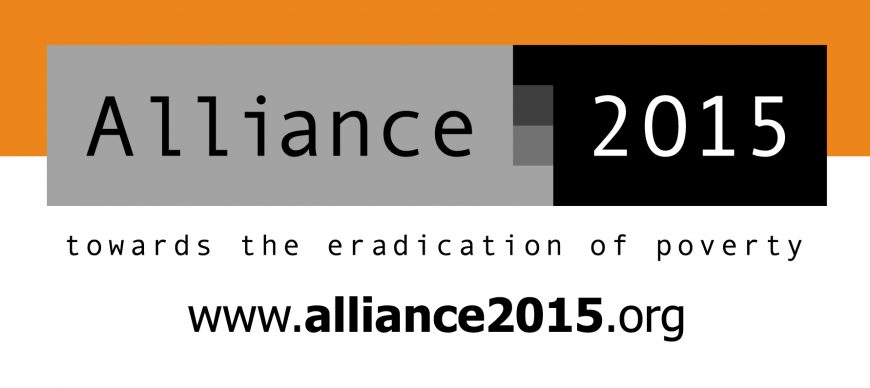Sinjar province in northern Iraq became synonymous with the plight of the Yazidi people in late 2014 when it fell under ISIS control.
As members of the community started to return to Sinjar province, Welthungerhilfe (WHH), as part of the EU MADAD-funded consortium led by ACTED, is helping farmers return to their fields and pastures since June 2019. The beneficiaries involved were happy to participate in the activities and share their experiences.
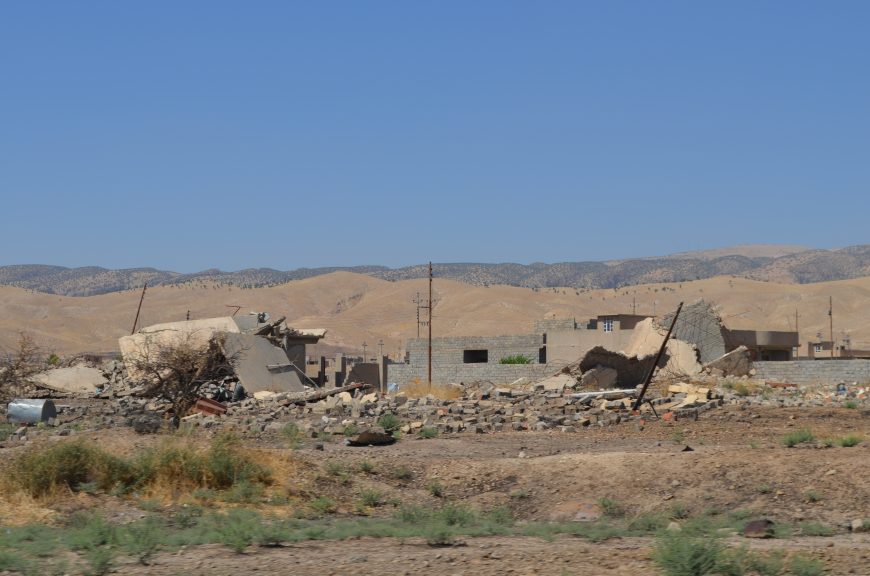
Escape to the mountain and back
Shaman[1], 40 year-old Yazidi men from Kani Sarki, a small village southwest of Sinjar town, learned sheep-keeping from his father at an early age. Despite having joined the army, Shaman continued to take care of his 70 sheep to provide a stable income for his family. Shaman lost everything in 2014 when ISIS seized Sinjar district. Shaman and his family numbered among the 40,000 displaced Yazidis who fled to Sinjar Mountain.
After three years relying on airdrops of water and food, Shaman and his family returned to Kani Sarki to restart their lives. However, the family’s return is overshadowed by the specter of ISIS elements whom they suspect remain active in neighboring areas. As the images in this article show, the conflict had erased much of the village.
[1] The name has been changed for protection reasons.
Improving existing capacities
To bring the area’s pastures and fields back into production, the communities of Kani Sarki clearly needed support.
With the help of experts from the Ministry of Agriculture and recently graduated agriculture engineers, WHH, as part of the ACTED-led consortium, oversaw the development of a curriculum covering animal husbandry, bee-keeping, open agriculture and home gardening, in addition to guidance on dietary diversity. The organizations selected the topics based on prior house visits during which WHH registered those families interested in taking part in trainings, and noted their preferences.
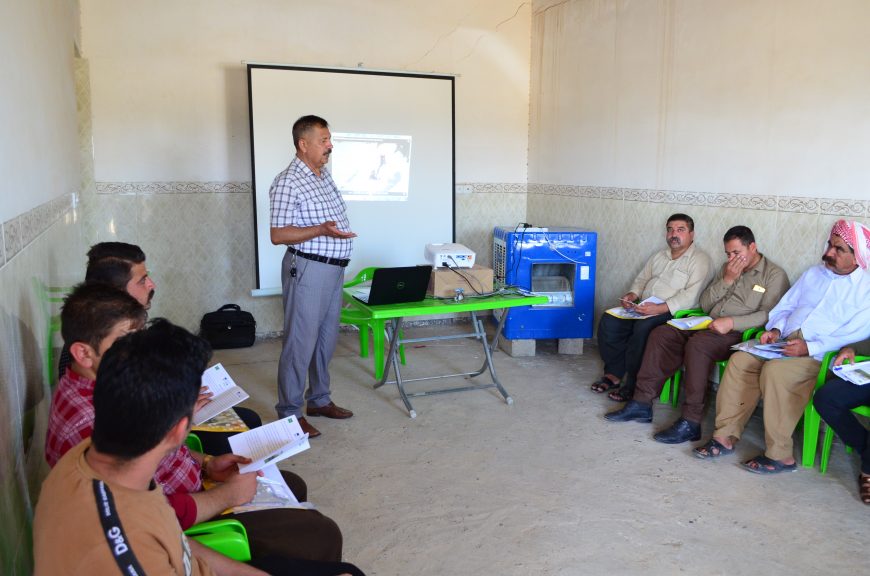
Helping family businesses grow
People here are very welcoming and open. Most of them offered their houses for trainings, where we can also leave all the equipment: generators, fuel, refreshments, cooling devices. Despite the immense everyday struggles, everyone still looks out for each other and for the equipment as well
Before long the community had totally bought into the project, happily providing hosting spaces for the trainings in their homes, due to a lack of communal spaces.
WHH is providing generators, water and refreshments, and is also establishing demonstration plots next to farmers’ homes for the practical trainings on improving farming techniques. These will also serve as plots for farming over the longer term.
After the completion of the training, WHH provides participants with grants to ensure they can put their new knowledge into practice immediately. Farmers use the assistance for: buying vaccines or medication, increasing the number of animals, purchasing storage and processing tools.
Shaman participated in an animal husbandry training in August 2019. Shaman often re-reads the education material that WHH distributed during the training and proudly informed the monitoring team that thanks to the vaccinations and care tips he received, his herd was growing in number.
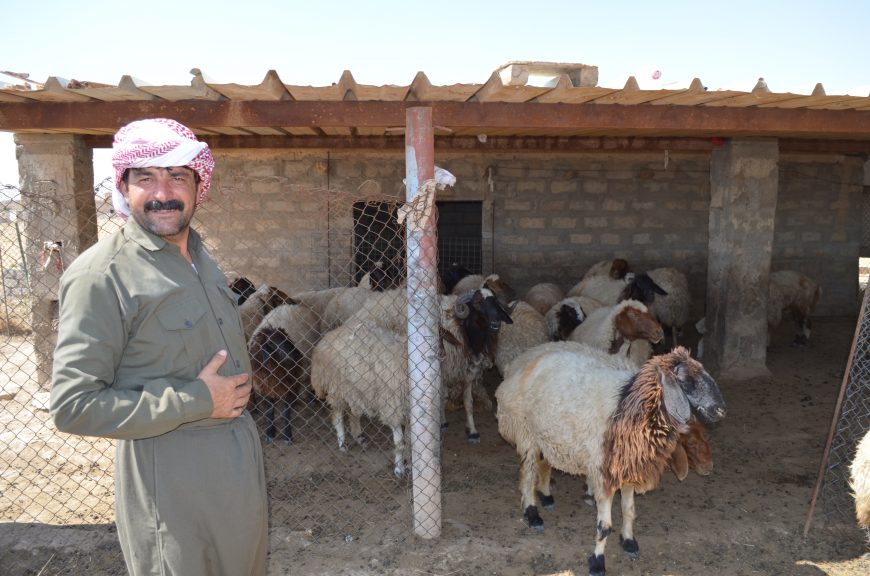
Before the war, I used to have 70 sheep. With the new techniques I learned, I hope my herd will grow, so I can provide employment for other people as well.
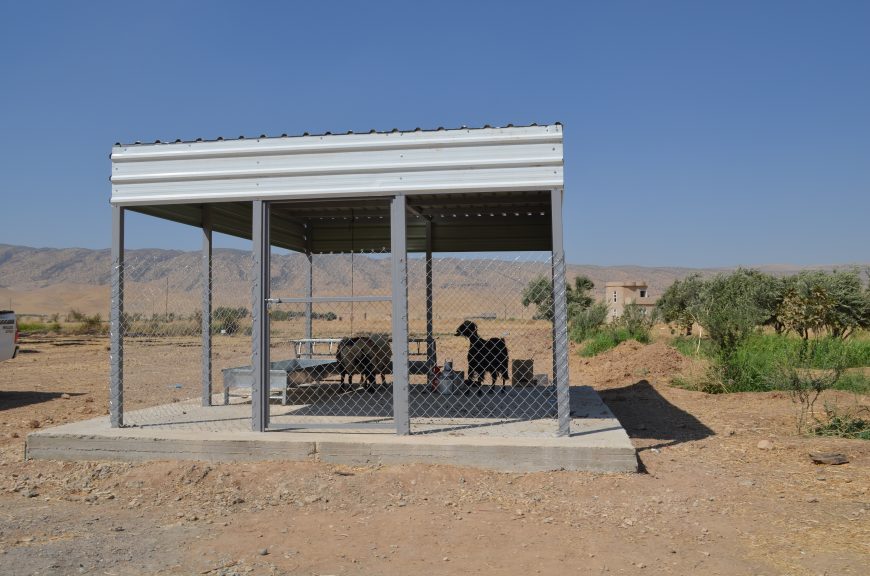
WHH will continue to provide trainings for animal husbandry, along with beekeeping, open agriculture and home gardening until Spring 2020. WHH will expects that 954 trainees will finish the courses in Sinjar district. As people returned, retailers also appeared in the area, looking to buy the local products. Sheep milk and honey are already produced with the help of the WHH trainings, helping families to secure a stable income from their work.
This is an Alliance 2015 intervention. Read more about the consortium here.
